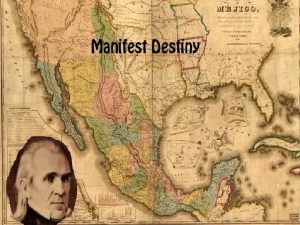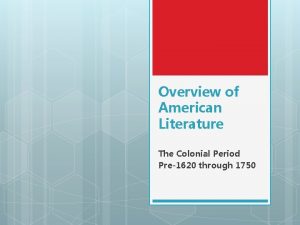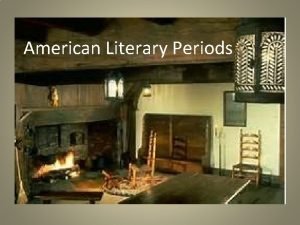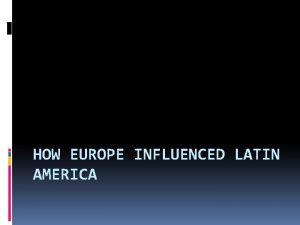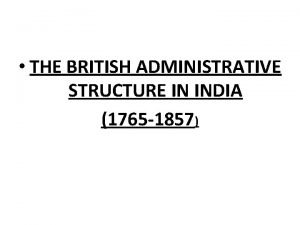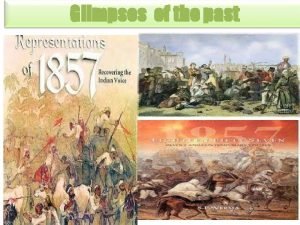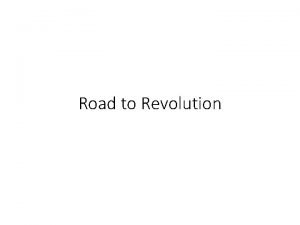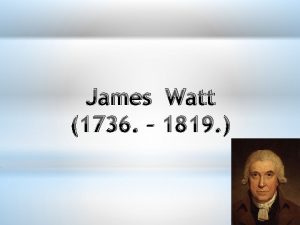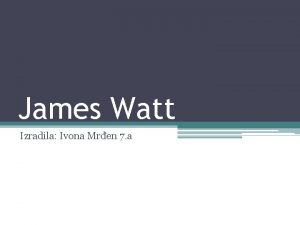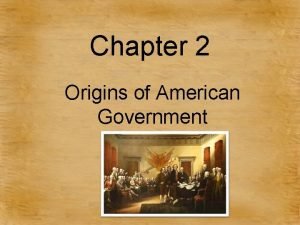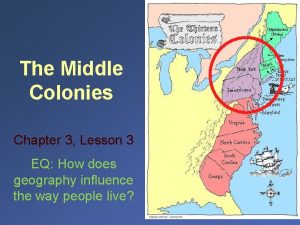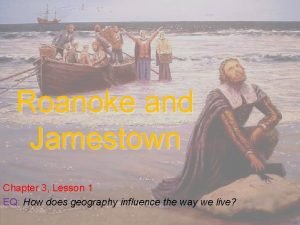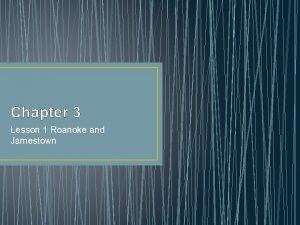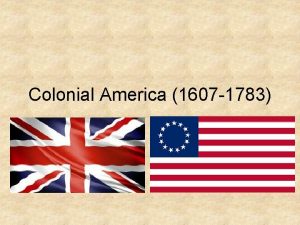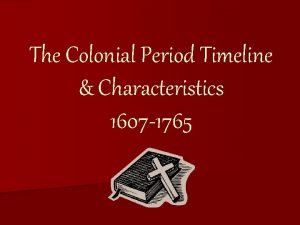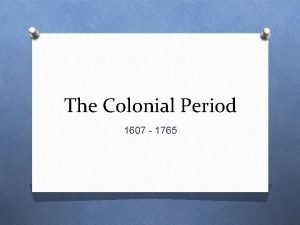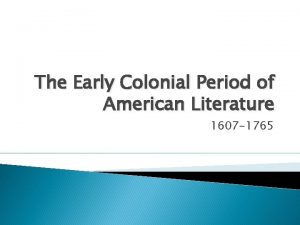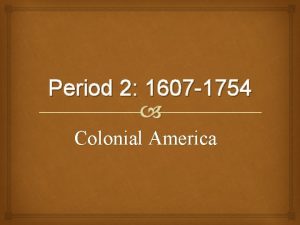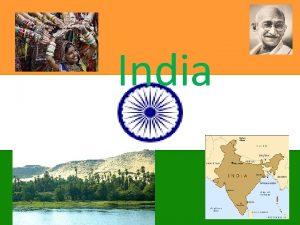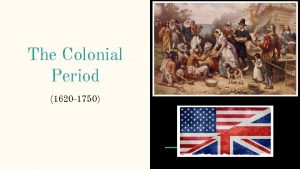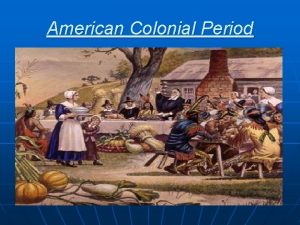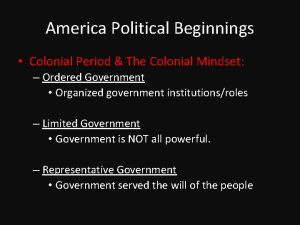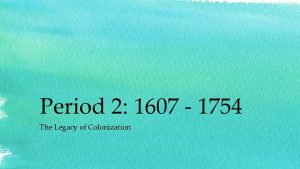Colonial Period Literature 1607 1765 Colonization of America














- Slides: 14

Colonial Period Literature (1607 -1765)

Colonization of America We should all know that in 1492 Columbus sailed the ocean starting the rush to the New World. By the mid 1600’s people would pay a small fortune to leave the crowded streets of Britain for the largely uninhabited colonies in the west.

Colonial works were influenced by British writers, since America was a colony during that period.

The works consist largely of historical and teaching materials.

You also find a lot of letters, journals, narratives, and histories from this period.

The Colonial Period spans the years 1607, when the English settlers founded Jamestown, Virginia, to 1765, when the British passed the Stamp Act and set off the American Revolution.

John Smith is considered the first American author - A True Relation of Such Occurrences and Accidents of Note as Hath Happened in Virginian. He wrote: and The General History of Virginia, New England, and the Summer Isles. Other writers of the early colonial period included Daniel Denton and William Penn.

Puritan poetry was common and very religious. One of the earliest books of poetry published was the Bay Psalm Book. Anne Bradstreet“Upon the Burning of House” and “To My Dear and Loving Husband”

Indian Encounter Books soon began including Indian interactions. During the seventeenth century, people were very curious as to what Indians were like and authors took notice, describing Indian encounters in their books/journals. Famous authors who included these encounters include but are not limited to: Daniel Gookin, Alexander Whitaker, John Mason, Benjamin Church, and Mary Rowlandson.

Cotton Mather was a historian who wrote the history of the colonies to connect the Puritan leaders with the heroes of the Christian faith. His works include: The Wonders of the Invisible World and The Biblia Americana.

Calvinism Established by John Calvin in the 1500’s, Calvinism is a theology best-known for supporting predestination- a theory that suggests you cannot escape your fate.

The Great Awakening The great awakening was a series of religious revivals among Protestants in the American colonies, esp. in New England, lasting from about 1725 to 1770. Literature in this time was, as you can imagine, centered around religion. Jonathan Edwards and George Whitefield represented the Great Awakening with theology supporting Calvinism.

Jonathan Edwards Jonathan was a writer/priest who believed in Calvinism. Edwards is famous for his Puritan Literature in which he would try to “scare” people into Christianity. Probably his most famous publishing was his first sermon, “Sinners in The Hands of An Angry God. ”

 Expansion of the united states of america 1607 to 1853 map
Expansion of the united states of america 1607 to 1853 map American literature colonial period
American literature colonial period American colonial period literature
American colonial period literature Colonization of south america
Colonization of south america Reasons for colonization in america
Reasons for colonization in america The british administrative structure in india(1765-1857)
The british administrative structure in india(1765-1857) Oh my countrymen let your eyes fill with tears
Oh my countrymen let your eyes fill with tears October 7-25 1765
October 7-25 1765 Parni stroj 1765
Parni stroj 1765 James watt životopis
James watt životopis Colonial america sports
Colonial america sports Chapter 2 lesson 1 origins of american government
Chapter 2 lesson 1 origins of american government Chapter 3 lesson 3 the middle colonies
Chapter 3 lesson 3 the middle colonies Colonial america lesson 1 roanoke and jamestown answer key
Colonial america lesson 1 roanoke and jamestown answer key Colonial america lesson 1 roanoke and jamestown answer key
Colonial america lesson 1 roanoke and jamestown answer key
